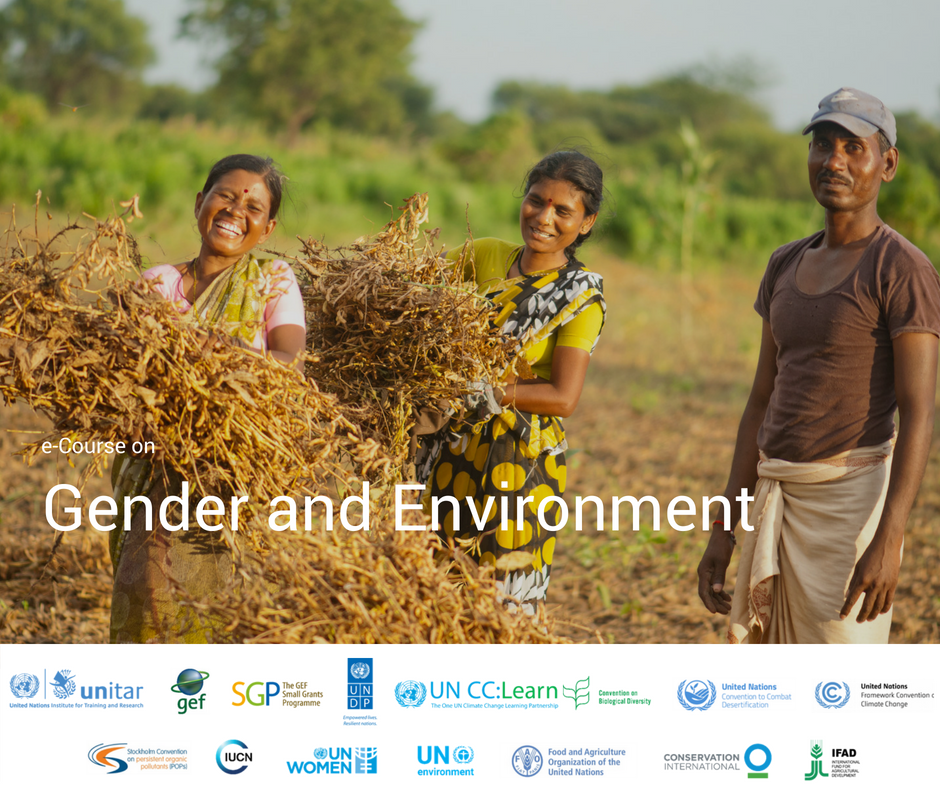IMPORTANT: Please register directly on the course website: http://unccelearn.org/
Do you want to find out why promoting gender equality and women’s empowerment can help deliver better environmental outcomes and to figure out how you can do it?
The course will help you better understand the linkages between gender and the environment. It will provide you with the knowledge and tools to mainstream gender and become an effective change-maker for sustainable development. It will also give you facts and figures, and a better understanding of the global international frameworks related to gender and environment.
It is a “one-stop-shop” for information and illustrations on gender dimensions linked to biodiversity, climate change, land degradation, international waters, and chemicals and waste. All you need to know about gender and the environment!


